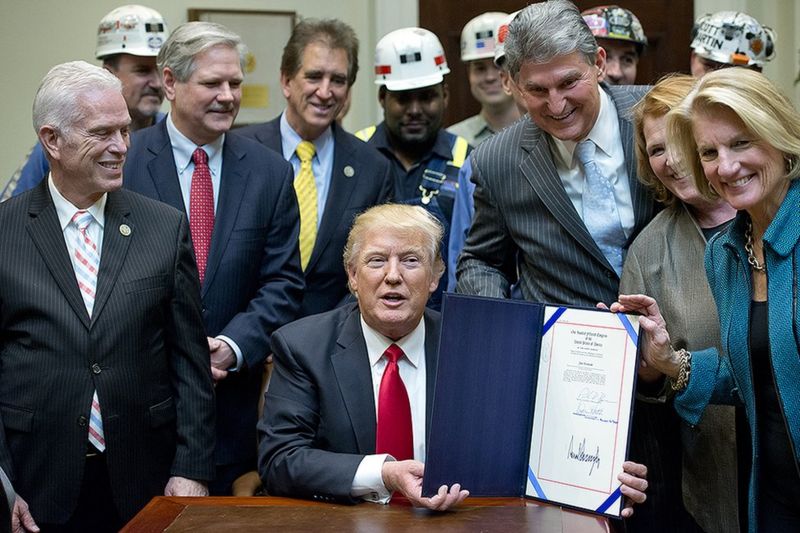How The Fentanyl Crisis Influenced U.S.-China Trade Discussions

Table of Contents
The Role of China in the Global Fentanyl Supply Chain
China's role in the global fentanyl supply chain is a critical factor driving the U.S.-China trade tensions. While China denies directly producing fentanyl for illicit purposes, it is undeniably a major source of precursor chemicals – the building blocks used to synthesize fentanyl. These chemicals, often legally produced in China, are then trafficked to other countries, including Mexico, where they are used in the production of fentanyl destined for the U.S. market.
The challenge lies in tracking and regulating these precursor chemicals. The complexity of the global chemical trade, coupled with a lack of sufficient international cooperation, makes it difficult to monitor the flow of these substances and prevent their diversion to illicit fentanyl production.
- Precursor chemical trafficking routes from China: These often involve intricate networks utilizing both legitimate and illegitimate trade channels, making tracking and interception extremely difficult.
- Lack of sufficient international cooperation in controlling precursor chemicals: Effective regulation requires robust international collaboration, which has been hampered by differing national priorities and legal frameworks.
- The difficulty in tracing the origin of fentanyl due to its complex supply chain: The multi-stage process, often involving multiple countries and intermediaries, makes pinpointing the precise origin of the final product nearly impossible.
- Examples of specific precursor chemicals originating from China: Chemicals like aniline, piperidine, and N-phenethylpiperidine are key precursors frequently sourced from China and used in the synthesis of fentanyl and its analogs.
U.S. Pressure Tactics on China Regarding Fentanyl
Faced with a mounting public health emergency, the U.S. government has employed various strategies to pressure China to address the fentanyl crisis. Trade negotiations have emerged as a significant leverage point in these discussions. The US has used the threat of trade penalties as a means to encourage greater Chinese cooperation in combating the flow of fentanyl precursor chemicals.
- Sanctions imposed on Chinese companies involved in the fentanyl trade: The US has targeted specific Chinese companies suspected of involvement in the production or trafficking of precursor chemicals, imposing sanctions that restrict their access to US markets and financial systems.
- Diplomatic pressure from the US to crack down on fentanyl production and trafficking: High-level diplomatic engagements have focused on urging China to strengthen its domestic regulations and law enforcement efforts to curb the flow of precursor chemicals.
- Inclusion of fentanyl-related concerns in bilateral trade talks: The issue of fentanyl has been explicitly included in high-stakes trade negotiations between the US and China, highlighting its importance in the broader bilateral relationship.
- Threats to impose tariffs or other trade restrictions: The US has used the threat of imposing tariffs or other trade restrictions on Chinese goods as a way to incentivize greater cooperation on fentanyl control.
China's Response and Counterarguments
China, while acknowledging the severity of the global opioid crisis, consistently maintains that it is not the primary source of fentanyl destined for the U.S. market. It argues that its domestic regulations are sufficient and points to its cooperation with international efforts to combat drug trafficking.
- China's claims of cooperating with international efforts to combat drug trafficking: China often highlights its participation in international anti-drug initiatives and its domestic crackdowns on drug-related crimes.
- China's domestic regulations and efforts to control precursor chemicals: China points to its existing regulations on controlled substances and efforts to monitor the production and export of precursor chemicals.
- China's arguments about the limitations of its ability to control the flow of precursor chemicals across its borders: China emphasizes the vastness of its borders and the challenges in completely preventing the illicit trafficking of chemicals.
- Counterarguments to US accusations of insufficient cooperation: China often counters US accusations by arguing that the responsibility for addressing the fentanyl crisis lies not solely with China but with a collective international effort.
The Impact on Bilateral Trade Relations
The fentanyl crisis has undeniably strained U.S.-China trade relations. The ongoing disagreements over China's role in the supply chain and the efficacy of its countermeasures have created a climate of distrust, impacting various aspects of bilateral trade.
- Examples of trade disputes or negotiations directly influenced by the fentanyl crisis: The inclusion of fentanyl-related concerns in trade talks demonstrates its impact on the overall negotiation agenda.
- Impact on overall trade volume and investment between the two countries: While not the sole factor, heightened tensions related to fentanyl could impact investment decisions and trade flows between the two countries.
- Potential for further escalation of trade tensions due to the fentanyl issue: The unresolved issue holds the potential to escalate trade tensions further, impacting the broader economic relationship.
- The role of international organizations in mediating the conflict: International organizations like the UN Office on Drugs and Crime play a crucial role in fostering cooperation and providing technical assistance to address the global fentanyl crisis.
The Lasting Impact of the Fentanyl Crisis on U.S.-China Trade
The fentanyl crisis has profoundly impacted U.S.-China trade discussions, highlighting the complex interplay between public health, national security, and economic relations. The lack of complete resolution regarding China's role in the fentanyl supply chain continues to cast a shadow over bilateral trade negotiations. Understanding the nuances of this relationship is critical for navigating this complex issue. Understanding the intricate relationship between the Fentanyl Crisis and U.S.-China Trade Discussions is crucial for informed policy-making and international cooperation. Continue to learn about this critical issue.

Featured Posts
-
 Palantir Technologies Stock Buy Sell Or Hold A Current Market Evaluation
May 10, 2025
Palantir Technologies Stock Buy Sell Or Hold A Current Market Evaluation
May 10, 2025 -
 Uk Immigration Policy New Visa Crackdown Targets Nigerians And Other High Risk Groups
May 10, 2025
Uk Immigration Policy New Visa Crackdown Targets Nigerians And Other High Risk Groups
May 10, 2025 -
 Nicolas Cages Exs Lawsuit Dismissed Son Weston Still Facing Claims
May 10, 2025
Nicolas Cages Exs Lawsuit Dismissed Son Weston Still Facing Claims
May 10, 2025 -
 The Impact Of Trumps Assertions On Greenland And Its Connection To Denmark
May 10, 2025
The Impact Of Trumps Assertions On Greenland And Its Connection To Denmark
May 10, 2025 -
 Nhl 2024 25 Season Key Storylines To Follow
May 10, 2025
Nhl 2024 25 Season Key Storylines To Follow
May 10, 2025
